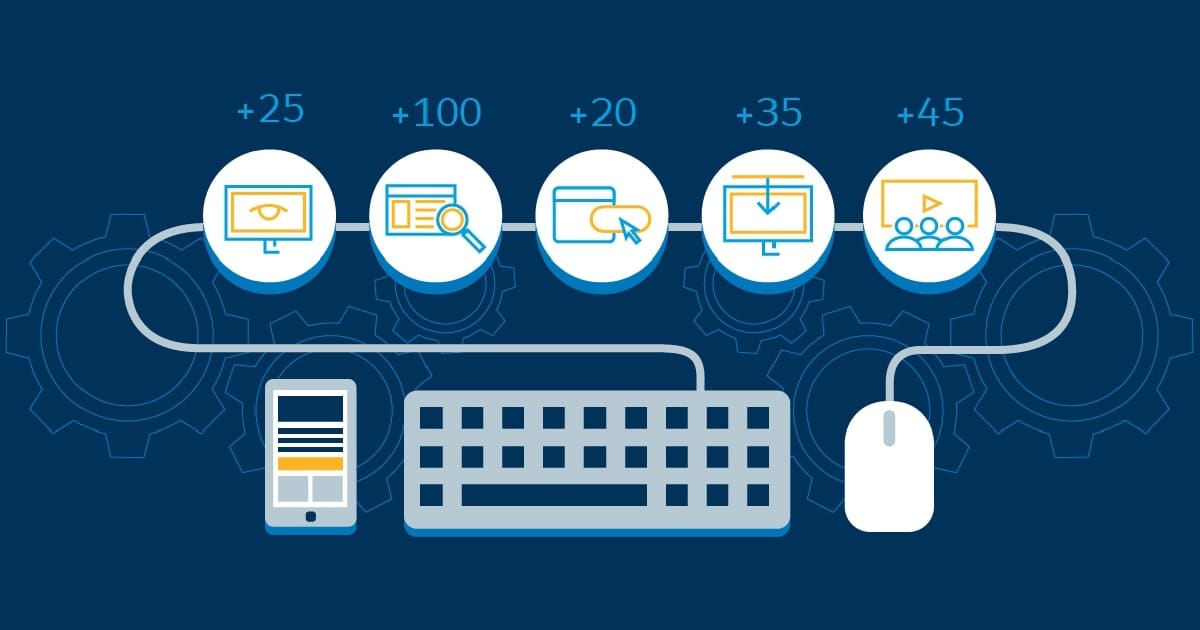Companies are constantly seeking innovative ways to streamline their operations and maximize sales. One of the most effective strategies to achieve this is through marketing automation. This article will delve into five powerful marketing automation consulting tips that can significantly boost your sales and transform your business operations.
Understanding Marketing Automation
Before we dive into the specific tips, it’s crucial to understand what marketing automation entails. Marketing automation refers to the use of software and technology to automate repetitive marketing tasks. This can include email marketing, social media posting, ad campaigns, and even complex workflows that span multiple channels.
Marketing automation best practices involve leveraging these tools to deliver personalized, relevant content to your audience at the right time, thereby nurturing leads and driving conversions more effectively.
The Impact of Marketing Automation on Sales
Marketing automation has revolutionized the way businesses approach their sales and marketing efforts. By implementing marketing automation strategies, companies can:
- Increase efficiency by automating repetitive tasks
- Improve lead quality through better targeting and nurturing
- Enhance customer experience with personalized interactions
- Gain valuable insights through data analytics
- Boost overall ROI by optimizing marketing spend
Now, let’s explore the five powerful marketing automation consulting tips that can help you harness these benefits and boost your sales.
Tip 1: Develop a Comprehensive Strategy
The first and perhaps most crucial marketing automation consulting tip is to develop a comprehensive strategy. Many businesses make the mistake of diving into marketing automation without a clear plan, leading to suboptimal results and wasted resources.
Key Elements of a Robust Marketing Automation Strategy
Clear Objectives: Define what you want to achieve with marketing automation. Is it lead generation, customer retention, or increased sales?
Audience Segmentation: Identify your target audience and segment them based on various criteria such as demographics, behavior, and preferences.
Content Mapping: Create a content plan that aligns with your customer journey and addresses the needs of each segment at different stages.
Channel Selection: Determine which channels (email, social media, website, etc.) will be most effective for reaching your audience.
Integration Plan: Outline how marketing automation will integrate with your existing systems, such as your CRM and sales tools.
Performance Metrics: Establish KPIs to measure the success of your marketing automation efforts.
By developing a comprehensive strategy, you lay the foundation for successful marketing automation implementation. This strategic approach ensures that your automation efforts are aligned with your business goals and targeted towards the right audience with the right message.
Tip 2: Focus on Lead Scoring and Nurturing

One of the most powerful features of marketing automation is its ability to score and nurture leads effectively. This marketing automation consulting tip can significantly improve your sales efficiency by helping you focus on the most promising prospects.
Implementing Lead Scoring
Lead scoring involves assigning points to leads based on various attributes and behaviors. This helps prioritize leads and determine which ones are sales-ready. Here’s a simple lead scoring model:
| Attribute/Behavior | Points |
|---|---|
| Downloads whitepaper | 10 |
| Visits pricing page | 15 |
| Attends webinar | 20 |
| Opens email | 5 |
| Clicks email link | 10 |
| Job title (Decision maker) | 25 |
| Company size (Enterprise) | 20 |
Effective Lead Nurturing
Once you’ve scored your leads, the next step is to nurture them. This involves providing valuable content and interactions that guide leads through the sales funnel. Here are some lead nurturing best practices:
Personalized Content: Use the data you’ve collected to deliver personalized content that addresses the specific needs and interests of each lead.
Multi-Channel Approach: Don’t rely solely on email. Incorporate other channels like social media, retargeting ads, and personalized website experiences.
Progressive Profiling: Gradually collect more information about your leads over time to refine your targeting and personalization.
Timely Follow-ups: Use automation to ensure timely follow-ups based on lead actions or score thresholds.
A/B Testing: Continuously test and optimize your nurturing campaigns to improve their effectiveness.
By focusing on lead scoring and nurturing, you can ensure that your sales team is focusing their efforts on the most promising leads, thereby increasing conversion rates and boosting sales.
Tip 3: Implement Behavioral Triggers
The third marketing automation consulting tip focuses on leveraging behavioral triggers. These are automated responses triggered by specific user actions or behaviors. When implemented correctly, behavioral triggers can significantly enhance customer engagement and drive sales.
Types of Behavioral Triggers
Welcome Series: Triggered when a new user signs up or makes their first purchase.
Abandoned Cart: Activated when a user adds items to their cart but doesn’t complete the purchase.
Browse Abandonment: Triggered when a user views product pages but doesn’t add anything to their cart.
Re-engagement: Activated for users who haven’t interacted with your brand for a specific period.
Post-Purchase: Triggered after a customer makes a purchase, often used for cross-selling or upselling.
Best Practices for Behavioral Triggers
Timing is Crucial: Ensure your triggers are timed appropriately. For example, an abandoned cart email should be sent within a few hours, not days.
Personalization: Use the data you have about the user to personalize the triggered message.
Clear Call-to-Action: Each triggered message should have a clear and compelling call-to-action.
Test and Optimize: Continuously test different versions of your triggered messages to improve their effectiveness.
Implementing behavioral triggers is a key aspect of eCommerce marketing automation. It allows you to respond to user actions in real-time, providing timely and relevant communications that can significantly boost conversion rates.
Tip 4: Leverage Predictive Analytics
The fourth marketing automation consulting tip involves harnessing the power of predictive analytics. This advanced feature of marketing automation uses historical data and machine learning algorithms to predict future outcomes and behaviors.
Applications of Predictive Analytics in Marketing Automation
Customer Lifetime Value Prediction: Estimate the long-term value of each customer to prioritize retention efforts.
Churn Prediction: Identify customers who are likely to stop doing business with you, allowing for proactive retention strategies.
Next Best Action: Predict the most effective next step in the customer journey for each individual.
Content Recommendations: Suggest the most relevant content to each user based on their past behavior and preferences.
Lead Scoring: Enhance your lead scoring model with predictive elements to improve accuracy.
Implementing Predictive Analytics
Data Collection: Ensure you’re collecting comprehensive and accurate data across all customer touchpoints.
Choose the Right Tools: Select marketing automation platforms that offer robust predictive analytics capabilities.
Start Small: Begin with one or two predictive models and expand as you gain confidence and see results.
Continuous Learning: Regularly update your predictive models with new data to improve their accuracy over time.
Act on Insights: Ensure your team is prepared to act on the insights generated by predictive analytics.
Leveraging predictive analytics can significantly enhance the benefits of marketing automation by allowing you to anticipate customer needs and behaviors, rather than simply reacting to them.
Tip 5: Ensure Seamless Integration
The final marketing automation consulting tip focuses on integration. For marketing automation to be truly effective, it needs to work seamlessly with your other business systems and processes.
Key Integrations for Marketing Automation
CRM Integration: This allows for a smooth flow of information between your marketing and sales teams.
E-commerce Platform: For businesses selling online, integrating your e-commerce platform with your marketing automation system is crucial.
Content Management System (CMS): This integration allows for more effective content delivery and website personalization.
Social Media Platforms: Integrating social media allows for more comprehensive tracking and engagement.
Analytics Tools: Integration with analytics tools provides deeper insights into the effectiveness of your marketing efforts.
Best Practices for Integration
Plan Ahead: Consider integration needs when selecting your marketing automation platform.
Use APIs: Leverage APIs for more flexible and robust integrations.
Data Synchronization: Ensure data is synchronized regularly between systems to maintain accuracy.
User Training: Train your team on how to effectively use the integrated systems.
Regular Audits: Periodically audit your integrations to ensure they’re functioning correctly and efficiently.
Proper integration ensures that your marketing automation efforts are aligned with your overall business operations, leading to more effective campaigns and improved marketing automation ROI.
Conclusion
Implementing these five marketing automation consulting tips can significantly boost your sales and transform your marketing efforts. From developing a comprehensive strategy to leveraging predictive analytics and ensuring seamless integration, each tip plays a crucial role in maximizing the effectiveness of your marketing automation efforts.
Remember, successful marketing automation is not just about implementing technology; it’s about using that technology to create more personalized, relevant, and timely interactions with your customers. By focusing on these aspects, you can create a marketing automation system that not only boosts sales but also enhances customer satisfaction and loyalty.
As you embark on your marketing automation journey, consider partnering with a marketing automation agency that can provide expert guidance and support. With the right strategy and tools in place, marketing automation can be a powerful driver of business growth and success.
Marketing automation consulting tips, when applied correctly, can revolutionize your marketing efforts and significantly impact your bottom line. By continuously refining your approach and staying abreast of new developments in the field, you can ensure that your marketing automation strategy remains effective and continues to drive results for your business.
FAQ
Bring a consultant on as early as possible when implementing a new MA platform. They can help with platform selection, data migration, integration building, and workflow development. For existing systems, if your team lacks expertise or bandwidth to optimize workflows, a consultant can fill gaps.
Consultants act as advisors who provide strategic guidance and help build/optimize your MA program. Marketers focus on executing day-to-day campaign creation, content development, and monitoring within your established workflows.
Track leads generated, sales won, and revenue gained from newly automated processes. Compare campaign performance before and after the consultant’s involvement. Improved efficiency and team productivity also contribute to ROI.
Yes, onboarding your team is wise so they understand workflows and can maximize the system. Many consultants offer admin, end-user, and customized training sessions to equip your broader organization.
Essential features include lead scoring, email and landing page builders, nurture campaigns, CRM integration, automation and triggers, robust reporting, mobile optimization, social media management, and tools to track ROI.
Work with your consultant to map out customer journeys and define the informational needs for each stage. Create a content calendar tailored to nurture streams and campaigns. Focus on developing targeted content that speaks to your personas’ interests and needs as they progress to a sale.
 Anas is our go-to copywriter with a knack for crafting persuasive and high-converting eCommerce landing pages. His passion for words and understanding of consumer psychology helps turn visitors into loyal customers. When he's not refining his copy, Anas enjoys exploring the latest digital marketing trends and experimenting with new writing techniques. His blend of creativity and strategic thinking makes him an indispensable part of our energetic team.
Anas is our go-to copywriter with a knack for crafting persuasive and high-converting eCommerce landing pages. His passion for words and understanding of consumer psychology helps turn visitors into loyal customers. When he's not refining his copy, Anas enjoys exploring the latest digital marketing trends and experimenting with new writing techniques. His blend of creativity and strategic thinking makes him an indispensable part of our energetic team.












